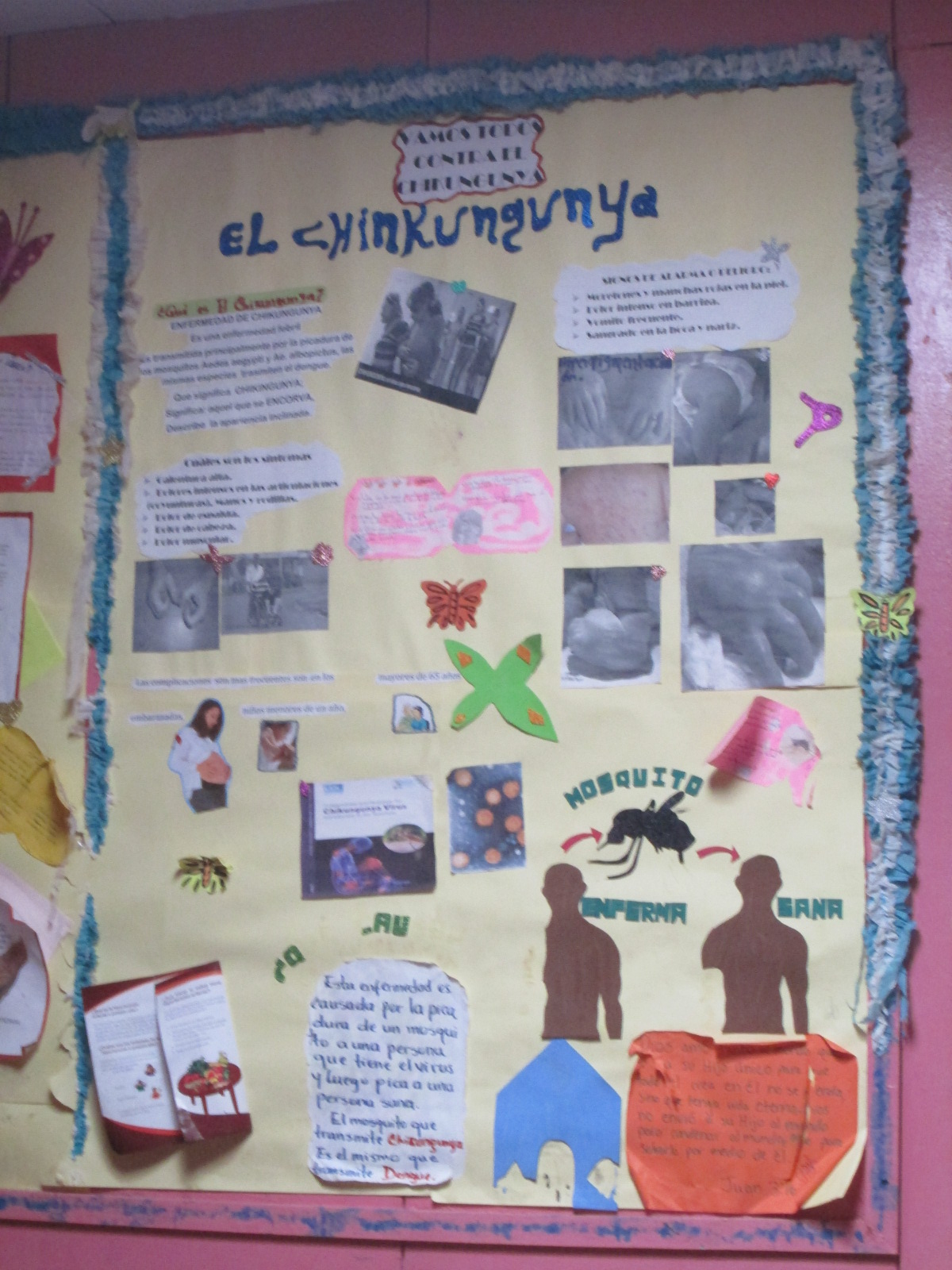A Day in the Life…Masatepe
ISAIAH FRIESEN & LUKE KAUFMAN are serving in the city of Masatepe. They only have a couple days left there, but here’s what they’ve been up to…
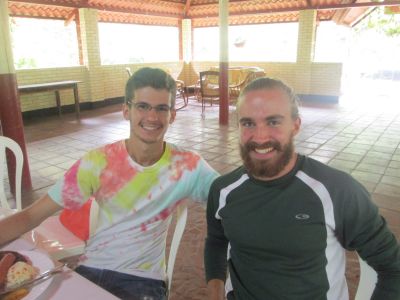
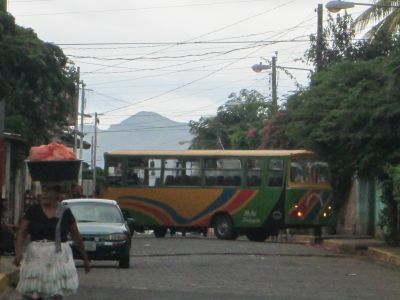
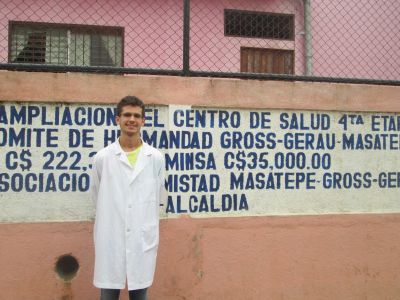
JOURNAL EXCERPTS BY LUKE KAUFMAN:
“For service I am working in the health center of Masatepe. I chose this assignment to help me learn more in my field of study of nursing. So far I have spent my days going to the rural poor towns of Masatepe. I arrive at work at 8am and go around to my co-workers to greet them. Then I sit and chat for 15-20 minutes with the few workers that will go with me to the rural town. Once everyone is ready we jump in the truck or ambulance and hit the road. The ride is always nice and relaxing.
Once we arrive to the small town, we hop out and split up into 2 or 3 groups. Each group will have a select area and walk from house to house visiting each family. When we first arrive we are searching the area for carriers of standing water such as barrels, buckets, tires or jugs. These are all places where mosquitoes leave their offspring. These offspring will then grow and spread the disease Chikungunya and also now the new disease called Sika, which is similar but much worse than Chikungunya. To each family we visit, we give a lecture on how to prevent all of this and to get rid of the mosquitos in their homes. After they have gotten rid of all unnecessary water sources for the mosquitoes, we put a small bag of chemicals into the barrels of water that they don’t dispose of. These chemicals are supposed to kill any offspring of mosquitoes that try to inhabit the water. This bag of chemicals is also supposed to last for 6-8 weeks.”
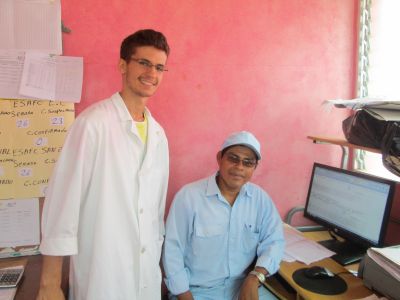
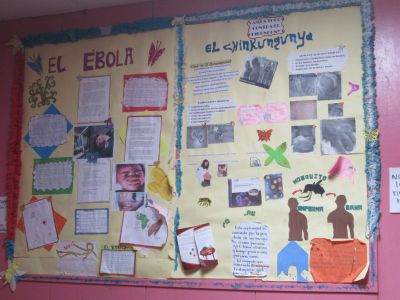
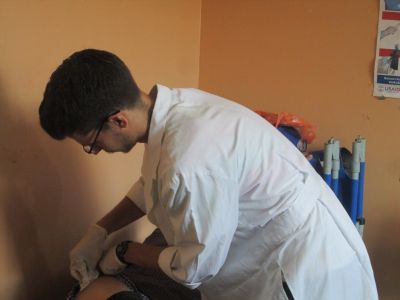
“This past week has been the first week that I have worked in the Health Center itself. I have really enjoyed this week the most because I am learning a lot more nursing. I have been alongside a different nurse each day of the week at the station of “curaciones” (bandaging). This has been interesting because I am able to observe similarities and differences they all have. I am also able to watch for errors they make. Most of the errors are related to sanitation, {an item touching something} that breaks the sanitary field.
While working in “curaciones,” I have the opportunity to give intramuscular and subcutaneous injections in the gluteas and the arm. This has been very beneficial for me. Now I am becoming very used to giving injections and I am able to do them very fluidly and with confidence. In the past, I have had some fear with injections, probably because I had only given 2 total.
I have also had the chance to clean and bandage different types of wounds. Multiple patients have had diabetes. One had his big toe amputated and another had a big chunk of skin removed from the top of his foot…”
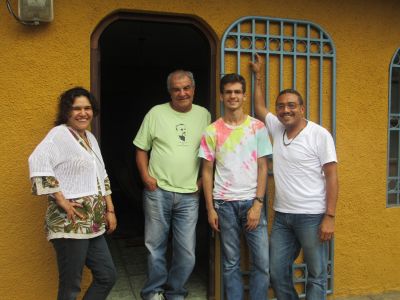
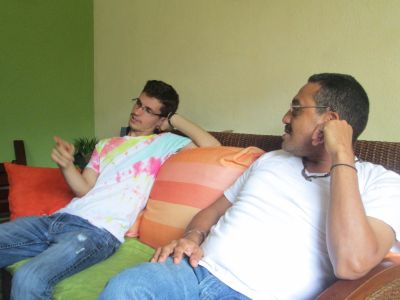
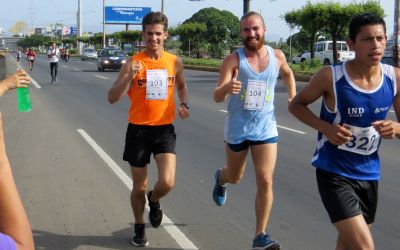
“During SST, Isaiah and I have had the opportunity to run 3 races now. This has been a blessing to have had these opportunities. They have been great work-outs for Isaiah and I and GREAT opportunities to dive into Nica running culture and meet many runners!
This past weekend Isaiah and I were able to hitch a ride with the Schirch family and run a 5K in Managua. It was another great opportunity to be a part of the running community. We found a few fellow runners that we had the chance to run against in our other races. It’s been fun and interesting getting to know these runners. I’ve met 2 now that live in Masatepe and we are planning on getting together to run. This way they can also teach us some routes that haven’t been able to find yet.
Many of the runners we have met told us they are also training to run the “Repliegue,” the race that Isaiah and I are training for that is taking place on the 12th of July on a Sunday. One or two of these runners are around the same speed as Isaiah and I, so we are hoping we all get to run together. It will be very interesting to see how everything turns out in the race. [See “Repliegue Race” previous blog post to hear how it turned out] In the past years, I have heard that the heat and lack of water during the race have been major factors.”
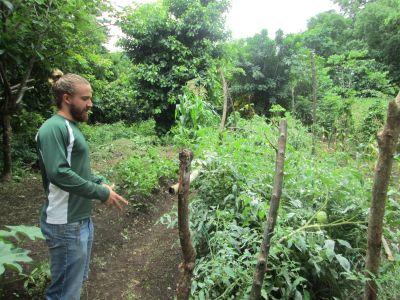
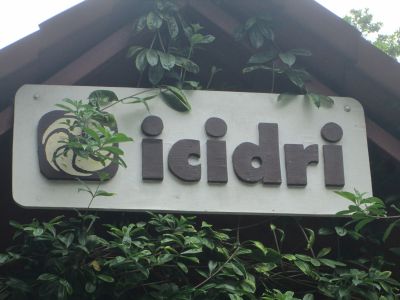
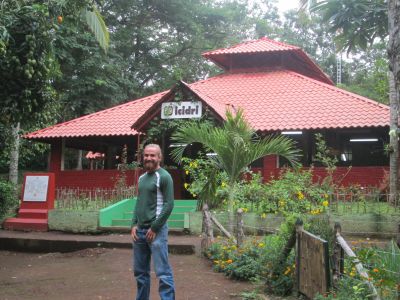
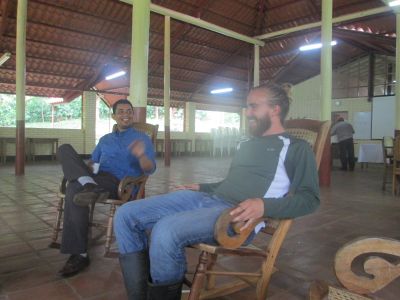
JOURNAL EXCERPTS BY ISAIAH FRIESEN:
“I arrive each morning at 8 o’clock to ICIDRI-el Instituto de Capacitaciones e Investigaciones en Desarollo Rural Integral. This a farm belonging to the Polytechnical University in Managua, a university founded by Baptists. On this farm, all things are produced using entirely organic methods, without any chemical additives. This is still a fairly revolutionary concept in Nicaragua, just as it is in the rest of the world. ICIDRI is here to provide a place for further study of these methods as well as education about sustainable, organic agriculture for whoever may wish to visit. Many school groups as well as community development workers comes from around the country to learn about this model of agriculture.
My typical day usually involves slightly harder physical labor in the morning, using shovels, pick-axes, or machetes, and slightly less intense labor in the afternoon. Jobs vary a great deal depending upon the day. I’ve raked leaves, cleared ground for planting, transplanted ornamental plants from one bed to another, harvested oranges and avocadoes, cut bamboo for an ornamental fence, and dug a 60cm deep in the ground to create the base for special garden beds. You never know what the job will be. At noon, we break for lunch, and we typically don’t return to work until 2, after letting lunch settle and taking a solid siesta. We find odd jobs to do for a couple of hours, and around 4pm, I usually head straight home….I have a lot left to learn about the theory behind ICIDRI’s specific practices, which excites me for the next weeks.”
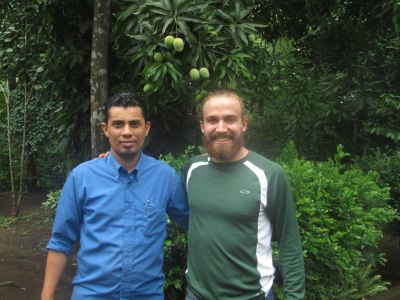
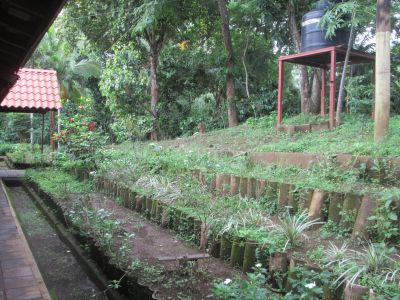
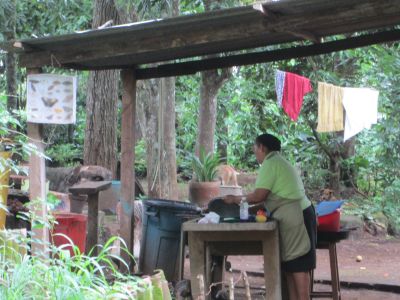
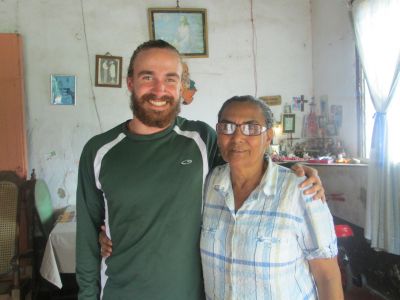
“On June 25 I went to Managua for with day with Don Hebler and Don Carlos for a “feria.” This translates to “fair,” but I really had no idea what that meant, just that we were taking farm produce to sell and some ornamental items to decorate a booth or display of some sort.
We arrived to a pavilion on the campus at UPOLI around 8:30am, where most of the booth had been set up already by college students. ICIDRI’s booth looked a little out of place next around 15 others which were set up as replicas of hotel rooms. It turns out that this feria is an annual event put on by the UPOLI department for Hotel and Tourism Administration. 2nd & 4th year students in this career have to choose a tourism enterprise that complies with the requirements of ecological and economic sustainability. ICIDRI fits the bill because it is being considered as a place to develop eco-tourism. It is one of a few places, where a lot of native flora and fauna exist alongside sustainable, diversified agriculture. The plan for development there includes a butterfly house, guest cabins, a look-out tower, and landscaped paths throughout the property.
The event began with a prayer of blessing followed by two very different dance presentations. The first dance was more classical, as I’d expect from a studio in the U.S. The second was more like what we saw in Masatepe for dance presentations in May. There were reggaeton and other Latin hits playing throughout the day.
For me, this was a great opportunity to spend a while talking with other Nicaraguan university students my age-really the first time I’ve been able to do that all summer. Most people I meet who are 20 already have a kid and are not studying and experiencing life anywhere close to the way I am. This allowed me to learn more about their world, hopes for after college, their family backgrounds, etc. It was a great day.”
